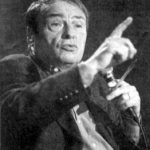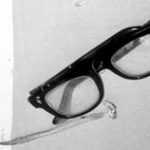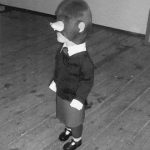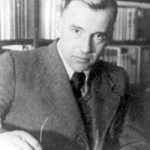Pierre Bourdieu, 1930–2002
Obituary symposium Pierre Bourdieu, 1930–2002 David macey With his large head perched upon the stocky body of a peasant, he did not look like the identikit French intellectual, especially when wearing his favourite tweed jackets and open-necked shirts. And in many respects Pierre Bourdieu, who died of cancer, aged seventy-one, on 23 January 2002, was […]

The vertigo of philosophy: Deleuze and the problem of immanence
One of the few terminological constants in Deleuzeʼs philosophical work is the word ʻimmanenceʼ, and it has therefore become a foothold for those wishing to understand exactly what ʻDeleuzean philosophyʼ is. That this ancient and well-travelled notion is held to have been given new life and meaning by a Deleuzean approach is evidenced in much […]

Sexing the state: Familial and political form in Irigaray and Hegel
Sexing the state Familial and political form in Irigaray and Hegel Alison stone In her political writings since the mid-1980s, Luce Irigaray has developed a highly original and provocative conception of the good society, according to which every aspect of social life should be so arranged as to promote the expression, cultivation and accentuation of […]
Does phenomenology have a future?
Writing towards the end of his life, the outlook for phenomenology seemed bleak even to Husserl: ʻPhilosophy as science, as serious, rigorous, indeed apodictically rigorous science – the dream is over.ʼ [1] This apparently gloomy assessment was echoed, some three decades later, by Heidegger, who observed, also towards the end of his life, that the […]

113 Reviews
Stella Sandford, Alberto Toscano, Esther Leslie, Jeremy Till, Philip Derbyshire and Gideon Calder ~ RP 113 (May/Jun 2002) ~ Reviews
The thingRudi Visker, Truth and Singularity: Taking Foucault into Phenomenology, Kluwer Academic, Dordrecht/Boston/ London, hb. 1999; pb. 2001. 399 pp., £110.00 hb., £29.00 pb., 0 7923 5985 2 hb., 0 7923 6397 3 pb.by some “thing” that refuses to become part of the order of meaning (signification).ʼ My ʻthingʼ is thus something to which I […]

114 Contents Page
Oppositional mentalities: Intellectuals, protest and the Left
Commentary Oppositional mentalities Intellectuals, protest and the Left Martin ryle‘t he “oppositional” mentality of the British Leftʼ, wrote E.P. Thompson in 1965, ʻis certainly a limiting outlook; but it has grown up simply because our Left has had so bloody much to oppose … The British Left … has been immersed in ineluctable political contexts […]

Grief work in a war economy
Grief work in a war economy Andrea brady The World Trade Center site has become, says a psychologist who has volunteered to counsel workers there, a ʻsacred burial groundʼ. [1] But as a focus for community memory and regeneration, a ritualized space, and an assertion of the religious character of American social life, the site […]

Bodies and power, revisited
Foucaultʼs early approach to the question of bodies and power is perhaps best known in his analysis of the body of the prisoner in Discipline and Punish. [1] Many of us have read and reread this analysis, and tried to understand how power acts upon a body, but also how power comes to craft and […]

Naturalizing phenomenology: Cognitive science and the bestowal of sense
Justification or affirmation?
Christian Kerslake is perfectly right to characterize Deleuzeʼs project as ʻa philosophy of the absoluteʼ, and in particular as one conceived in more or less direct competition with that of Hegel (ʻThe Vertigo of Philosophyʼ, RP 113). He is wrong, however, to emphasize the fundamentally discontinuous evolution of this philosophy, from an early period supposedly […]
114 Reviews
Peter Osborne, David Cunningham, Jon Goodbun, Stella Sandford, Alessandra Tanesini and David Macey ~ RP 114 (Jul/Aug 2002) ~ Reviews
Reviews In 1971, Bryan Magee published a book of conversations with British philosophers under the title Modern British Philosophy. Originating in a series of radio broadcasts and appearing under the imprint of Secker & Warburg, it was intended as a ʻlively introductionʼ to the philosophy of the day. The list of contributors included most of […]

Eclipse: The Anti-war Review
News Eclipse: The Anti-war ReviewAfter the attacks of September 11th the US administration moved with unnerving speed to produce a simple narrative to explain what had happened, and to justify a war in response to it. According to this narrative, the attacks had been organized by an international network of terrroists led by Osama bin […]
Marxism and the Visual Arts Now, University College London, 8–10 April 2002
Conference report Scholasticism and swaggerMarxism and the Visual Arts Now University College London, 8–10 April 2002 The title of this conference produced the expectation that critical analysis relating specifically to current artistic practices would be an issue of some urgency for contributors. For a surprising amount of them it was not. Nevertheless, the conference came […]

Hans-Georg Gadamer, 1900–2002
Hans-Georg Gadamer, 1900–2002 The German philosopher Hans-Georg Gadamer died on 13 March 2002 in Heidelberg, where he had lived since 1949, having succeeded Karl Jaspers there as Professor of Philosophy. Gadamer was born in Marburg in 1900, the son of a pharmaceutical chemist. The family moved to Wroclaw (Breslau) in 1902, where Gadamer went to […]

115 Contents Page
A grin without a cat: The French Right returns to office
Commentary A grin without a cat The French Right returns to office Jim wolfreys One of the many peculiarities of May 1968 was the sudden return to normality apparently indicated by the electoral victory for the Right which followed in June. The recent spate of elections in France seems at first glance to have followed […]

The introduction of the Oedipus Complex and the reinvention of instinct: Freud’s Three Essays on the Theory of Sexuality
Three Essays on the Theory of Sexuality, first published in 1905, is undoubtedly one of Freudʼs most important texts and, in many respects, the most contemporary. It is a summa in which Freud summarizes and articulates his insights into the meaning of sexuality for human existence in general, and for psychopathology in particular. As can […]

‘The history of truth’: Alain Badiou in French philosophy
The twenty-first meditation in Alain Badiouʼs LʼEtre et lʼévénement, which is devoted to Pascal, opens with the following quotation from the Pensées: ʻThe history of the Church should properly be called the history of truth.ʼ [1] The pensée in question is numbered 858 by Brunschwicg, and 776 by Lafuma. Although it is not my intention […]

All their play becomes fruitful: The utopian child of Charles Fourier
The central tenet of Charles Fourierʼs theory was the promise of universal happiness and social unity through a radical revision of manʼs relationship to labour. Vehemently opposed to both the violence of mass insurrection and the hypocrisies and corruption of burgeoning industrial capitalism, he dreamed of a pacific cultural revolution that would emerge from the […]

